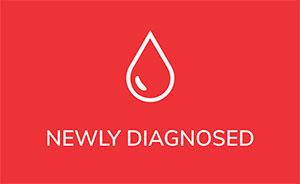At ASH 2018, I sat down with Dr. Neil Kay out of the Mayo Clinic, Rochester, MN to talk about the basic science research being done by the lab at Mayo where he collaborates with a lab team including Kay Medina, Ph. D. concerning how CLL impacts the bone marrow and ultimately our immunity.
The bone marrow is where all the action is. The marrow gives birth to the blood cells that give us life. It is also where our cancerous CLL cells hang out, grow, and cause their malignant effects.
That is why studying the bone marrow is so critical in understanding CLL.
Takeaways:
- Even before CLL is treated with medications that might damage the bone marrow, the CLL itself has had a negative impact of the hematopoietic stem cells that live there and make our cells.
- This is not simply a case of the healthy cells being crowded out by uncontrolled growth of the cancerous chronic lymphocytic leukemia cells in the marrow. That only happens with much more advanced disease.
- What seems to be happening is that “healthy normal” bone marrow stem cells themselves are less vigorous in producing all the cells that live in the blood, nodes and spleen.
- In other words, the bone marrow doesn’t work normally even in early stage CLL, potentially leading to low red blood cells, white blood cells (our immune system), and platelets.
- Tumor necrosis factor (TNF-α), an inflammatory cytokine (enzyme), may play a role in this bone marrow suppression.
- We have existing drugs that block TNF being used to treat inflammatory arthritis such as Rheumatoid Arthritis and other inflammatory diseases. Patients on these medications who also have CLL could be very interesting to study.
- Helping the bone marrow function to recover, theoretically could lead to improved immunity and ultimately lower our risk for serious infections and second cancers.
Conclusions:
Basic science research is so important in CLL.
If you have CLL and are also on medication such as adalimumab (Humira) or something similar for an inflammatory condition, please consider reaching out to us at [email protected] and we can connect you with Drs. Kay and Medinas’ lab team to see if you would be a fit for their research.
This area of research is increasingly relevant as fewer and fewer of us are dying of CLL while more and more are dying of second cancers and infections. We need to reboot our immunity.
At the CLL Society, we have identified 4 top priorities for future CLL research and reconstituting the immune system is one of them.
Here is my ASH 2018 interview with Dr. Neil Kay on bone marrow dysfunction in CLL:
Here is the link to the ASH abstract: Bone Marrow Hematopoietic Dysfunction in Untreated Chronic Lymphocytic Leukemia Is Partially Mediated By Exposure to Constituents of the Leukemic Microenvironment.
Enjoy.
Thanks
Brian
Brian Koffman MDCM (retired) MS Ed
Co-Founder, Executive VP and Chief Medical Officer
CLL Society, Inc.

















